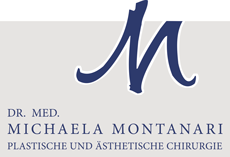Which breast implants offer long-term safe and sustainable results?
9. January 2014Full face treatment: the ideal way for natural facial rejuvenation
9 April 2014Breast augmentation - implant quality is crucial
"Breast augmentation - implant quality is crucial"
jameda expert guide, 18.01.2014
Breast augmentation with silicone implants is one of the most popular plastic and aesthetic procedures in Germany. Since the scandal surrounding inferior silicone implants from France at the end of 2011 (PIP scandal), patients' awareness of quality has grown significantly. In practice, it is clear that patients are asking far more frequently about the origin of the implants used. Individual patient counselling and information are therefore playing an increasingly important role. Quality and safety are therefore the top priorities when selecting implants. High-quality and modern silicone breast implants, such as those produced by the only German manufacturer in Dieburg (Hesse), must withstand comprehensive safety and stress tests that go beyond the requirements of legal standards. This forms the basis for long-term safe and sustainable results.
What to consider during breast surgery
Breast augmentation usually proceeds without any major complications. However, in rare cases, undesirable reactions may occur, such as displacement or rotation of the implant. Capsular fibrosis is also a possible complication: during the natural healing process, a capsule of connective tissue forms around the implant. This capsule usually remains soft, but if it thickens or hardens, it can lead to pain, displacement of the implant or deformation of the breast. The choice of implant plays a decisive role in prevention. The use of modern, high-quality implants with a textured (roughened) surface or Microthane® coating means that these complications can now be largely avoided. The scandal surrounding the inferior implants from France has also shown that the quality of the implants generally plays a very important role. The silicone used must be approved for long-term implantation and the products must be thoroughly tested before they are placed on the market. This safety is offered by experienced manufacturers who can provide evidence of a seamless quality management system.
Silicone implants and the issue of durability
High-quality modern implants that are filled with silicone gel approved for long-term implantation can theoretically remain in a woman's body for a lifetime. The risk of the current generation of implants leaking is very low as they are filled with a special, non-liquid silicone gel. The gel is so densely cross-linked that it does not leak, even if the implant is cut. However, no doctor or manufacturer can guarantee complete freedom from complications. This is because how a woman's body reacts to the foreign body implant depends on many different and individual factors that cannot be influenced by either the treating doctor or the manufacturer. The most important prerequisite for a sustainably successful and complication-free procedure is to inform and advise the patient in detail and in a spirit of trust beforehand. Of course, the selection of a suitable and high-quality implant also plays a decisive role in this case.
Breast cancer screening - also with a silicone implant
Silicone implants are inserted underneath the breast tissue or even the breast muscle, so that regular screening and therefore early detection of cancer are still possible.
Source: jameda expert guide, 18.01.2014



